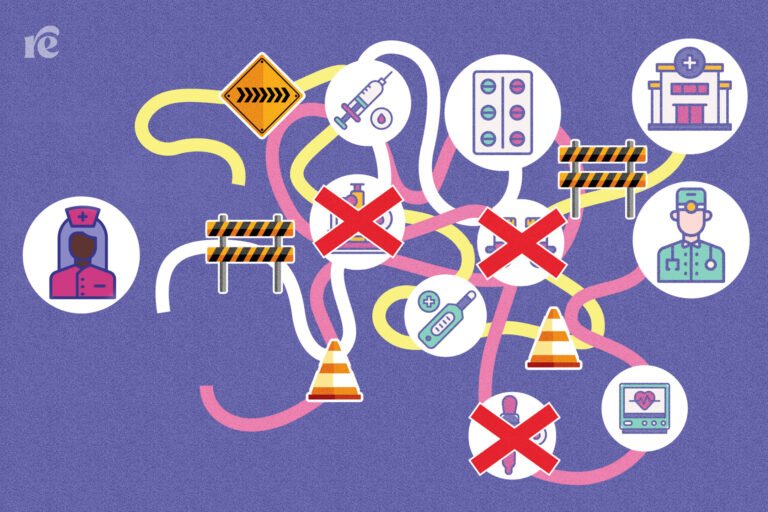Conservatives are not entirely satisfied with the criminalization of abortion and pregnancy outcomes across the country, they are now trying to prevent pregnant women from accessing information about abortion care and seeking abortions outside of states where it is prohibited. In March, Idaho Attorney General Raul Labrador issued a legitimate view said the state’s abortion ban prevented Idaho medical providers from referring a woman across state lines for abortion care or prescribing abortion pills to be picked up in another state. In response, providers in Idaho stopped providing out-of-state abortion referrals under fear of criminal prosecution or licensing penalties. Planned Parenthood suedand in August, a federal judge was ordered Idaho from the enforcement of the legal opinion.
The continued legality of abortion referrals is critical to helping pregnant women access abortion care and ensuring that health care providers can provide their patients with information. Abortion referrals are also sometimes a next step counseling on pregnancy optionswhere a clinician or counselor provides pregnant women with unbiased, non-directive information about parenting, termination of pregnancy or adoption.
State abortion bans have created an environment of fear and uncertainty among health care providers about the information they can provide to pregnant patients. That fear is especially troubling to providers and patients at Title X clinics, which are federally funded and provide reproductive and sexual health care to low-income people. In March, the Biden administration withdrew Title X funding of clinics in Tennessee because of the conflict between the Title X directive that providers offer patients counseling about pregnancy choices and the state ban on abortion.
Stephanie LeBleu, the director of the Title X project at Every Body Texas, an organization that supports sexual and reproductive health care providers in Texas, said the state myriad abortion bans and regulations have increased providers’ perceived risk of offering abortion information and referral services to clients at Title X clinics in Texas.
“The expectation under Title X regulations is that clinics receiving Title X funding must provide neutral, factual, non-prescriptive pregnancy counseling for all options [to patients who request it]LeBleu said. “That’s the framework we’ve been working under since the beginning of Title X, and that’s how all of our clinicians and providers are used to operating. But because of all the nebulous prohibition laws [Texas]we certainly have providers who have assessed the risk themselves—or legal counsel has assessed that risk—and decided to opt out [offering abortion referrals out of state]. And I would say it’s not necessarily because they wanted to. It’s because of all the uncertainty.”
LeBleu said Title X and Planned Parenthood clinics are some of the few places in Texas mandated to provide unbiased and neutral counseling about pregnancy options at the patient’s discretion.
“That’s one of the ways that Title X is important and it’s related to counseling about pregnancy choices,” LeBleu said. “Customers should be able to receive medically accurate information about their options from the health care providers they trust, [are] in their community and be able to ask questions with people they trust. Without access to a place within the healthcare infrastructure where they can get medically accurate information and valid service referrals, clients are kind of left to navigate it all.”
The relaxation of comprehensive pregnancy counseling in Texas is particularly harmful to pregnant Texans, as there is misinformation about pregnancy In connection and fake abortion clinics, which abound throughout Texas, spread misinformation about abortion and pregnancy. Fifty-eight percentage of Title X patients in Texas are uninsured and may face financial barriers to receiving health care and then counseling about pregnancy options from other providers.
It is also particularly harmful to pregnant women of color: According to the Family Planning Annual Report 2021, Title X clinics provide services to various groups of people. Women of color make up a significant number of Title X patients and a recent one study found evidence that black pregnant women were significantly less likely than white pregnant women to receive full pregnancy choice counseling from providers. State abortion bans will likely exacerbate these disparities.
In Florida, where abortion is currently prohibited at 15 weeks, Rachel Stein, senior nurse practitioner at Planned Parenthood of South, East and North Florida, counsels pregnant patients about their options and provides information about community resources. Stein said that because some pregnant patients may be less informed about their pregnancy options because of barriers to education or health care, it’s the provider’s job to make sure patients leave with the knowledge they need to make decisions about their pregnancy. their pregnancy.
“Some patients come in knowing information and some don’t,” Stein said. “This is how we ensure that all of our patients, once they come to see us, have access to medically accurate information about their options, whether it’s to continue, choose to adopt or terminate their pregnancy.
LeBleu said 70 percent of patients in Texas’ Title X network are at or below 100 percent of the federal poverty level, making the provision of Title X funds necessary to provide these patients with reproductive and sexual health care.
LeBleu added that unbiased, non-directive pregnancy choice counseling is essential to ensure reproductive justice.
“A person’s ability to receive accurate information and referrals about pregnancy options supports their ability to exercise their rights to have a child or not to have a child,” LeBleu said. “If you don’t have the information and you can’t find a trusted person to share that information with you, that’s probably not going to get you to a place where you can have autonomy over your body and what you want to do about it. your pregnancy”.
